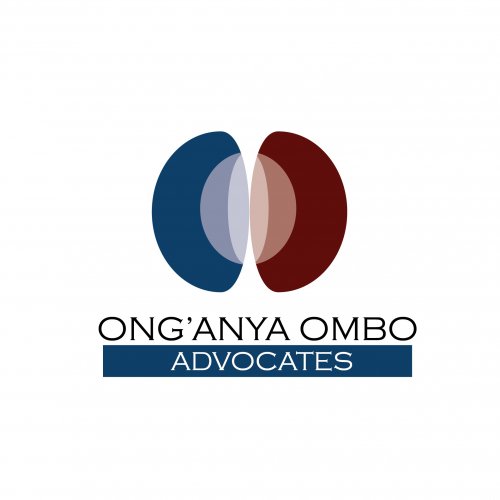Best Health Care Lawyers in Kenya
Share your needs with us, get contacted by law firms.
Free. Takes 2 min.
Or refine your search by selecting a city:
List of the best lawyers in Kenya
Legal guides written by Adroit Law LLP:
- Kenya Launches Digital Nomad Visa: A Gateway for Remote Workers
- Navigating the Payment System License Maze in Kenya
- Navigating the Complexities of Mining Licenses and Permits in Kenya: A Look into Artisanal and Large-Scale Operations
About Health Care Law in Kenya
Health care law in Kenya encompasses a range of statutes, regulations, and case law governing the delivery and quality of health services. It is shaped by constitutional mandates, particularly the 2010 Constitution, which grants every Kenyan the right to the highest attainable standard of health. The health sector is governed by a mix of national legislation such as the Health Act, county regulations, and professional standards. There's a significant emphasis on ensuring equitable access, quality of care, and the rights of patients in the healthcare system.
Why You May Need a Lawyer
There are several situations where engaging a lawyer with expertise in health care law might be necessary in Kenya:
- Medical Malpractice: If you believe you have been harmed due to negligence by a healthcare provider, a lawyer can help navigate the legal complexities of a malpractice claim.
- Patient Rights Violation: Instances where patient rights, such as informed consent or privacy, are alleged to be violated could require legal intervention.
- Health Insurance Disputes: Conflicts with insurance providers over coverage, benefits, or claims may necessitate legal assistance.
- Regulatory Compliance: Healthcare businesses or professionals may need legal aid to ensure compliance with various health regulations and standards.
- Public Health Matters: Legal expertise may be required in cases involving public health concerns, including responses to epidemics or pandemics.
Local Laws Overview
The primary legislative framework for health care in Kenya includes several key pieces of legislation:
- The Health Act, 2017: This consolidates health laws to establish a more coordinated health system in line with the Constitution.
- Public Health Act: Addresses issues related to public health, including sanitation, infectious diseases, and health facilities.
- Pharmacy and Poisons Act: Regulates the practice of pharmacy and the manufacture, compounding, and dispensing of medicines.
- Medical Practitioners and Dentists Act: Governs the registration of medical practitioners and oversight of professional conduct.
Additionally, county governments have their own health laws to manage local health needs. It is important for individuals and entities to be aware of both national and local regulations impacting health care.
Frequently Asked Questions
What rights do patients have in Kenya?
Patients in Kenya have the right to receive adequate health care, informed consent, privacy and confidentiality, non-discrimination, and the right to receive information about their health.
How can I pursue a medical malpractice claim?
You need to gather evidence related to the alleged malpractice, including medical records, and consult with a lawyer to assess your case and the possibility of compensation.
What is the role of NHIF in Kenya?
The National Hospital Insurance Fund (NHIF) is a government agency that provides health insurance coverage to Kenyan citizens, helping cover medical bills at accredited health facilities.
Can I access health care services in any county in Kenya?
Kenyan citizens can access public health care services in any county, although the availability and quality of services may vary depending on the locality.
How are health care practitioners regulated in Kenya?
Health care practitioners are regulated by various professional bodies such as the Kenya Medical Practitioners and Dentists Council (KMPDC), Nursing Council of Kenya, and the Clinical Officers Council, which ensure adherence to professional standards and ethics.
What steps should be taken if a patient dies due to suspected negligence?
The family should request a post-mortem examination, gather necessary medical documentation, and consult with a legal expert to explore potential claims of negligence.
How can one address delays in receiving health care services?
Addressing delays might involve communicating with healthcare facility management, lodging complaints with relevant health oversight bodies, or seeking legal assistance if necessary.
What is informed consent in medical procedures?
Informed consent is the process whereby a patient is given comprehensive information about a medical procedure or treatment, including risks and benefits, allowing for a voluntary decision to proceed.
What measures protect the privacy of patient data?
Kenya's legislative framework, such as the Data Protection Act and professional codes of conduct, ensures the confidentiality and security of patient's health information.
Where can patients report human rights violations in health care?
Patients can report violations to bodies such as the Kenyan National Commission on Human Rights, as well as relevant professional councils and consumer protection agencies.
Additional Resources
- Ministry of Health: Provides comprehensive policies and guidelines related to health care services.
- National Hospital Insurance Fund (NHIF): Offers support and information regarding health insurance coverage.
- Kenya Medical Practitioners and Dentists Council: Regulates medical practitioners and may address professional conduct issues.
- Kenyatta National Hospital: A major referral hospital offering resources and information on health services.
Next Steps
If you or someone you know requires legal assistance regarding health care in Kenya, here are the steps you should consider:
- Consult with a legal professional specializing in health care law to understand your rights and options.
- Gather all relevant documentation, including medical records, communication with health service providers, and any correspondence related to your case.
- Consider reaching out to local health-focused NGOs or consumer protection bodies for additional support and guidance.
- Ensure that you understand the costs involved in pursuing legal action, including consultation fees and potential court expenses.
Taking these steps can help ensure that you receive proper advice and representation to address any health-related legal challenges in Kenya.
Lawzana helps you find the best lawyers and law firms in Kenya through a curated and pre-screened list of qualified legal professionals. Our platform offers rankings and detailed profiles of attorneys and law firms, allowing you to compare based on practice areas, including Health Care, experience, and client feedback.
Each profile includes a description of the firm's areas of practice, client reviews, team members and partners, year of establishment, spoken languages, office locations, contact information, social media presence, and any published articles or resources. Most firms on our platform speak English and are experienced in both local and international legal matters.
Get a quote from top-rated law firms in Kenya — quickly, securely, and without unnecessary hassle.
Disclaimer:
The information provided on this page is for general informational purposes only and does not constitute legal advice. While we strive to ensure the accuracy and relevance of the content, legal information may change over time, and interpretations of the law can vary. You should always consult with a qualified legal professional for advice specific to your situation.
We disclaim all liability for actions taken or not taken based on the content of this page. If you believe any information is incorrect or outdated, please contact us, and we will review and update it where appropriate.
Browse health care law firms by city in Kenya
Refine your search by selecting a city.

















